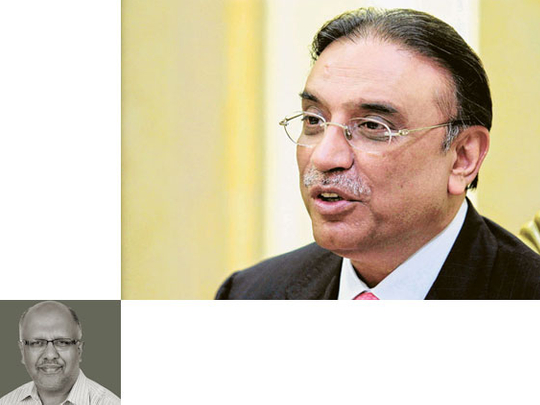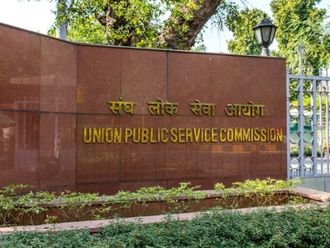
A notice served by Pakistan’s Supreme Court to Prime Minister Raja Pervez Ashraf last week has once again put the spotlight on the country’s highest judicial authority.
The court ordered Ashraf to appear before it on August 27 to face a continuing case of contempt. This relates to the saga linked to the government’s refusal to formally request the authorities in Switzerland to reopen a corruption-related investigation against President Asif Ali Zardari, accused of having received kickbacks in the past from two Swiss companies.
The case has dragged on for months. This issue led to the downfall of former prime minister Yousuf Raza Gilani after he refused to write to the Swiss authorities following the Supreme Court’s order.
In spite of knowing the fate that befell its former leader, Pakistan’s ruling coalition led by the Pakistan People’s Party (PPP) continues to defy the Supreme Court. For the moment, it is difficult to know if Ashraf will meet the same fate as Gilani. But the government and the court are clearly on a collision course.
While the court is steadfastly standing its ground, there are many in the ruling establishment who are determined to politicise the matter. Comments from some of the PPP’s activists clearly indicate more than just a defiant streak.
In defending Ashraf’s case, they also promise to uphold Pakistan’s young democracy, as if defying the court is synonymous with upholding key democratic principles. Clearly, nothing could be further from the truth.
Any move to defy the court is bound to backfire in more ways than one. To begin with, the judicial system must always work as the main guarantor of a stable democratic order. If indeed, independence of operation by the highest court in the land is compromised, a society risks becoming endlessly chaotic.
Harsh reality
In the case of Pakistan’s present regime, there has been a persistent effort to surround the court with controversy as a way to dilute the sanctity of the cases targeting the top elected leaders. The reality, however, is that the government has only surrounded itself with more controversy with the passage of time.
Zardari, who is the reason for the PPP’s ongoing drive against the court, has been exposed to allegations of corruption before as well. Though the government insists that he remains immune from prosecution in view of his position as the head of state, there is a considerable body of legal opinion which challenges this view.
Eventually, the court’s insistence on letting the authorities in Switzerland at least investigate the matter must be the final outcome to this deadlock. Left unresolved, the alternative will be a continuing deadlock of the kind which will only further undermine Zardari’s already tainted position as Pakistan’s top elected leader.
As the battle between the court and government continues, it is Pakistan’s mainstream population that suffers. Across the country, Ramadan which began in July, has seen a rampant rise in the prices of some of the most sought after food items.
In sharp contrast to the official claim of inflation beginning to fall recently, a walk through any market will immediately present a two-fold opposing view.
People’s verdict
Not only are conditions across Pakistan clearly a testimony to the yawning gap between official claims and reality. More vitally, as the government clearly remains obsessed with winning a futile court battle to protect Zardari, its already tattered credibility across Pakistan only takes an unending hit.
Perhaps the only saving grace at the end of the day may well be, that Ashraf’s departure as the prime minister, may bring closer the prospect of Pakistan’s next parliamentary elections. Though not due till the middle of 2013, an increasing number of analysts believe, the country’s deepening political uncertainty makes it imperative for the people of Pakistan to elect a new government.
In the run-up to Ashraf’s scheduled end-August appearance in the court, it is possible that the PPP and its leaders will seek to build up their support base on the streets of Pakistan. Yet, in a year of a record rise in public protests on matters like the ever growing shortage of electricity, it will be hard for Pakistan’s ruling party to create a groundswell in favour of its cause.
With or without the court’s success in forcing fresh investigations against Zardari in Switzerland, the people of Pakistan have already spoken.
Farhan Bokhari is a Pakistan-based commentator who writes on political and economic matters.








